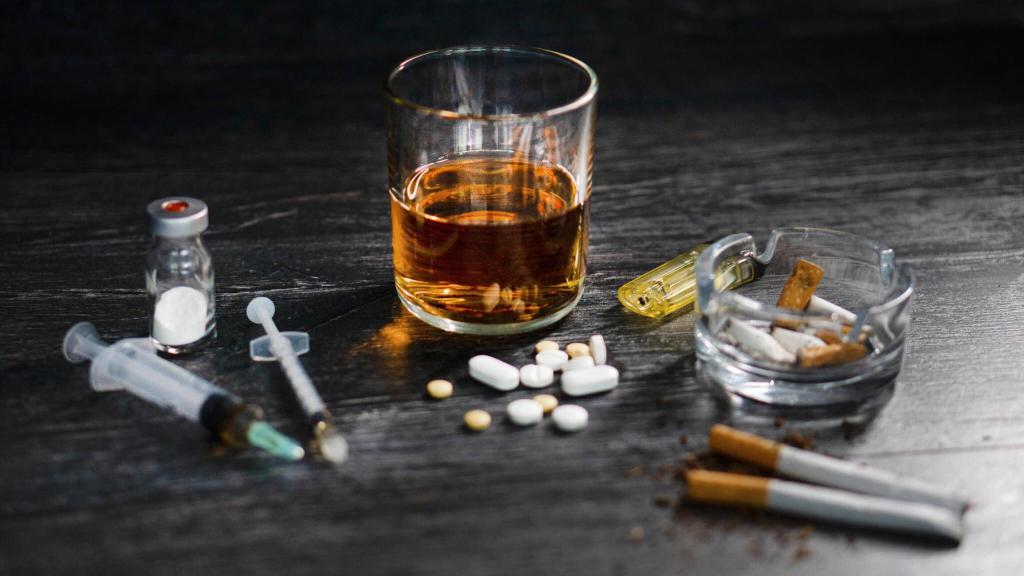In the hustle and bustle of life, it’s easy to overlook the complexities of addiction. It’s not just a matter of willpower or choice; addiction is a complex brain disorder with roots deep within our neural pathways. Addiction is a complex issue, often misunderstood. But here’s the good news: science has given us a clearer picture of what happens in the brain during addiction, and this knowledge empowers us to seek help and find recovery.
If you or someone you know is struggling with addiction, it’s crucial to understand the science behind it. In this article, we’ll delve into the depths of addiction, shedding light on its mechanisms and exploring the path to recovery through Rehabilitation Centers and addiction treatment.

Understanding Addiction: The Science Behind It
Understanding Addiction: The Science Behind It
Addiction is a complex and often misunderstood phenomenon that affects millions of lives worldwide. In India, where substance misuse is a growing concern, understanding addiction is crucial for individuals, families, and communities. In this blog, we delve into the science behind addiction, demystifying its mechanisms and shedding light on effective treatments.
What Is Addiction?
At its core, addiction is not merely a lack of willpower or a moral failing. It is a chronic brain disorder that alters how our brains function. Let’s break it down:
- A Primary Disease: Addiction is recognized as a primary disease, meaning it stands on its own rather than being a symptom of another condition.
- Brain-Centered: The brain plays a central role in addiction. Substance use leads to changes in brain circuits, affecting learning, memory, judgment, and behavior.
- Psychological and Social Components: Addiction isn’t just about physical dependence; it involves psychological and social factors too.

How Does Addiction Happen?
1. Brain and Drugs
- Neurons and Signals: Our brain communicates through neurons, which send and receive signals. Drugs interfere with this communication.
- Mimicking Neurotransmitters: Some drugs mimic natural neurotransmitters, tricking our brain’s receptors into activating nerve cells. For example, heroin and marijuana imitate these natural messengers.
- Reward Circuit Overload: Drugs like methamphetamine and cocaine flood the brain’s “reward circuit” with dopamine, the pleasure neurotransmitter. This reinforces the connection between drug use and pleasure, overshadowing other goals.
2. The Myth of Willpower
- Willpower Alone Isn’t Enough: Contrary to popular belief, addiction isn’t about weak willpower. Brain changes over time make it hard for addicted individuals to resist drug use.
- Ignoring Consequences: Even when aware of adverse effects, addiction drives people to prioritize drug-induced pleasure or avoid withdrawal symptoms.
Treatment and Rehabilitation
1. Rehabilitation Centers
- Safe Spaces: Rehabilitation centers provide a safe environment for detoxification and recovery.
- Holistic Approach: They address physical, psychological, and social aspects of addiction.
2. Drug Abuse Treatment
- Detoxification: The first step is detox, where the body rids itself of harmful substances.
- Therapies: Behavioral therapies help individuals understand triggers and develop coping strategies.
3. Alcohol Addiction Treatment
- Support Groups: Alcoholics Anonymous (AA) and similar groups offer peer support.
- Medications: Some medications reduce cravings and withdrawal symptoms.
The Science of Recovery: Rehabilitation Centres Offer Hope
The good news is that the brain has remarkable plasticity, meaning it can change and heal. Rehabilitation centres (Rehab Centers) play a vital role in recovery by providing a structured environment with:
- Detoxification: Safely managing withdrawal symptoms under medical supervision.
- Therapy: Individual and group therapy sessions help individuals understand the underlying causes of addiction and develop coping mechanisms.
- Holistic Approaches: Many centres offer yoga, meditation, and other techniques to promote overall well-being.
- Support Groups: Connecting with others who understand the challenges of addiction fosters a sense of community and belonging.

Finding the Right Rehab Center in India
The path to recovery is unique for everyone. When choosing a Drug Abuse Treatment or Addiction Treatment Center, consider these factors:
- Type of Addiction: Different centres specialize in specific addictions, ensuring tailored treatment plans.
- Treatment Approach: Some use medication-assisted therapy (MAT) alongside counseling, while others focus on holistic approaches.
- Location and Amenities: Consider the centre’s proximity to your home environment and the facilities offered.
- Accreditation and Cost: Look for centres with proper accreditation and transparent cost structures.
Remember, you’re not alone. Addiction affects millions in India, but there’s hope. Don’t hesitate to seek help from a qualified professional or a reputable Alcohol Addiction Treatment centre. Here are some resources to get you started:
- National Institute of Mental Health and Neurosciences (NIMHANS) – https://nimhans.ac.in/
- Central Institute for Rural Alcohol and Drug Abuse (CIRADA) – https://www.uwstout.edu/outreach-engagement/lifelong-learning/rehabilitation-professionals/national-rural-institute-alcohol-drugs-and-addictions
- Society of Addiction Medicine India (SAMI) – https://addictionpsychiatry.in/about-the-society/
Taking the First Step Towards a Brighter Future
Addiction is a disease, but it doesn’t have to define you. By understanding the science behind it and seeking professional help at a Rehabilitation Centre, you can reclaim your life and build a healthier future. Remember, recovery is a journey, and there will be challenges along the way. But with support and the right tools, you can break free from addiction and rediscover your true potential.

Leave a comment